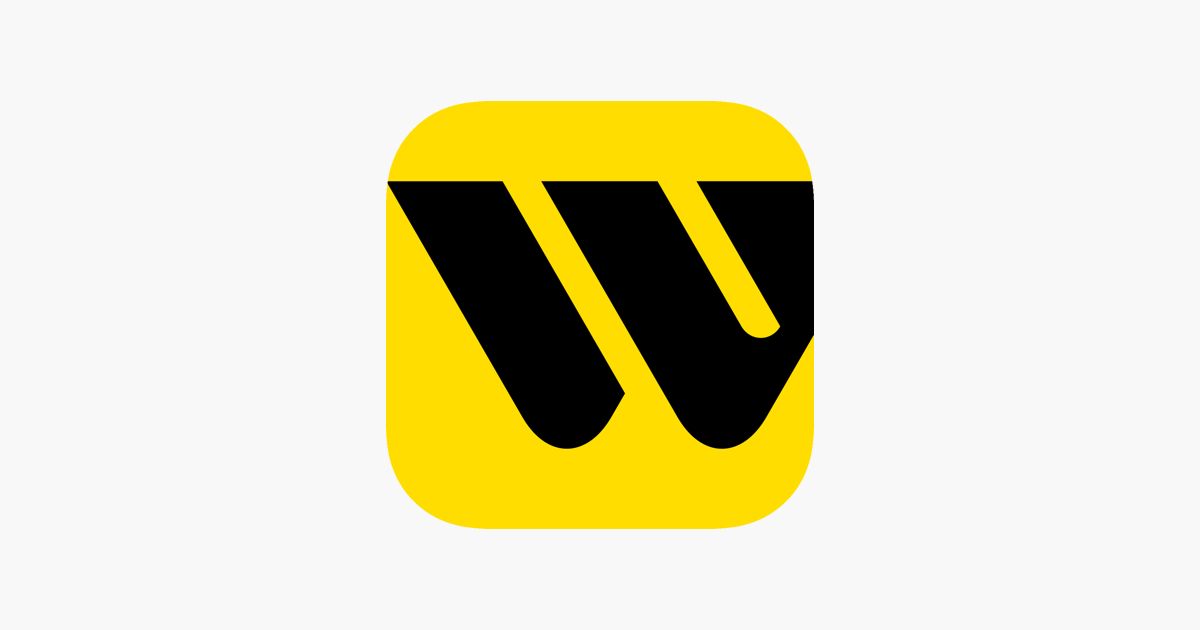Introduction
Welcome to the world of money transfer agents! If you are looking for a rewarding career or a business opportunity that allows you to help people send and receive money across borders, becoming a money transfer agent might be just what you’re looking for.
With the rapid growth of globalization, the demand for convenient and secure ways to transfer money internationally has skyrocketed. As a money transfer agent, you will play a vital role in facilitating these transactions, connecting individuals and businesses across different countries.
Becoming a money transfer agent requires a combination of industry knowledge, regulatory compliance, and business acumen. In this article, we will guide you through the steps to becoming a successful money transfer agent, helping you establish a profitable venture in the financial services industry.
Before diving into the steps, it’s important to note that the money transfer industry is highly regulated. This ensures the safety and security of funds being transferred, and also protects consumers from fraud and illegal activities. As a money transfer agent, you will need to familiarize yourself with these regulations and abide by them in your operations.
Now, let’s explore the steps you need to take to become a money transfer agent.
Steps to Becoming a Money Transfer Agent
Becoming a money transfer agent involves several steps that will set you on the path to success in this industry. By following these steps, you can establish yourself as a trusted partner for individuals and businesses looking to transfer funds internationally.
- Research and understand the money transfer industry: Before diving into the world of money transfer, it’s essential to gain a comprehensive understanding of the industry. Familiarize yourself with the different money transfer methods, industry trends, and potential challenges you may encounter. This knowledge will lay a solid foundation for your journey as a money transfer agent.
- Choose the right money transfer company: Selecting a reputable money transfer company to partner with is crucial. Look for well-established companies that offer a wide network of agents, competitive exchange rates, and robust technology infrastructure. Research and compare different options to find the one that aligns with your business goals and provides the best support to operate as a money transfer agent.
- Meet the regulatory requirements: Ensure that you meet all the regulatory requirements to operate as a money transfer agent in your jurisdiction. This may include obtaining licenses, permits, and registrations from the relevant government authorities. Working closely with legal experts can help you navigate through these requirements smoothly.
- Apply for necessary licenses and permits: Once you understand the regulatory requirements, apply for the necessary licenses and permits. This process may involve providing detailed information about your business structure, financial records, and compliance procedures. The specific requirements will vary depending on your location and the regulations in place.
- Set up your business infrastructure: Establish a dedicated physical location or online platform to operate as a money transfer agent. Ensure that your infrastructure is secure, reliable, and compliant with data protection regulations. Invest in the necessary technology and systems to facilitate seamless transactions for your customers.
- Train your staff and ensure compliance: Properly train your employees on money transfer processes, regulatory compliance, and customer service. They should be well-equipped to handle customer inquiries, provide accurate information, and follow the necessary protocols to ensure the security of transactions.
- Market your money transfer services: Develop a comprehensive marketing strategy to create awareness about your money transfer services. Utilize both offline and online channels to reach your target audience. Establish partnerships with local businesses and community organizations to expand your customer base and increase brand visibility.
- Provide excellent customer service: Deliver exceptional customer service to build trust and loyalty among your clientele. Promptly address any customer concerns or issues, and continuously improve your services based on customer feedback. A positive reputation for reliability and professionalism will attract more customers to your money transfer business.
By following these steps, you can successfully establish yourself as a money transfer agent and contribute to the seamless transfer of funds across borders.
Research and Understand the Money Transfer Industry
Before embarking on your journey to become a money transfer agent, it is crucial to conduct thorough research and gain a deep understanding of the money transfer industry. This foundational step will equip you with the knowledge and insights necessary for success.
Start by familiarizing yourself with the different methods of transferring money internationally. Research popular channels such as bank transfers, online payment platforms, and specialized money transfer companies. Pay attention to the advantages and limitations of each method, including cost, speed, and accessibility.
Next, dive into the current trends and developments within the industry. Stay updated with the latest technologies, innovations, and regulations that shape the money transfer landscape. Subscribe to industry newsletters, join relevant forums or communities, and attend conferences or webinars to stay informed.
Understanding the potential challenges and risks involved in the money transfer industry is also crucial. Explore topics like fraud prevention, regulatory compliance, and customer protection. Educate yourself on the red flags to watch out for in fraudulent transactions and ways to mitigate risks.
Furthermore, research the competitive landscape in your target market. Identify existing money transfer agents and analyze their business models, pricing strategies, and customer offerings. This research will help you identify gaps in the market and position your business in a unique way to attract customers.
Consider collaborating with industry experts or consultants who can provide valuable insights and guidance. They can help you navigate the complexities of the money transfer industry and provide you with tailored advice based on your specific business goals.
Lastly, don’t underestimate the importance of networking in this industry. Build relationships with other professionals, including money transfer agents, financial institutions, and regulatory bodies. Attending industry events and engaging in online communities can help you form connections that can assist you throughout your journey as a money transfer agent.
By investing time and effort into thorough research, you will gain a solid foundation of knowledge and prepare yourself for the challenges and opportunities that come with being a money transfer agent.
Choose the Right Money Transfer Company
Choosing the right money transfer company is a crucial step in becoming a successful money transfer agent. Partnering with a reputable and reliable company will not only enhance your credibility but also ensure a seamless experience for your customers.
Start by conducting thorough research on various money transfer companies. Consider factors such as their reputation, years of operation, and track record in the industry. Look for companies that have a strong presence and a wide network of agents in the regions you plan to serve.
Compare the exchange rates offered by different companies. A competitive exchange rate can attract more customers and provide a better value proposition. Additionally, consider any fees or charges imposed by the money transfer company, as this can impact your profit margins and the pricing you offer to customers.
Another critical aspect to evaluate is the technology infrastructure and platforms provided by the money transfer company. Ensure that their systems are reliable, secure, and user-friendly for both you and your customers. A seamless and efficient transfer process will enhance customer satisfaction and streamline your operations.
Furthermore, look for money transfer companies that offer comprehensive support and training to their agents. Consider factors like their availability for customer support, training materials, and resources to help you navigate any issues or challenges that may arise. A knowledgeable and responsive support team can be invaluable in ensuring the success of your money transfer business.
While evaluating money transfer companies, it’s also important to assess their compliance with regulatory requirements. Ensure that the company you choose adheres to the necessary regulations and has a robust compliance program in place. This will help protect you and your customers from potential legal and financial risks.
Lastly, consider the reputation of the money transfer company within the industry and among customers. Look for reviews, testimonials, and feedback from existing agents and customers to gauge their experience with the company. Positive reviews and a strong reputation indicate a higher level of trust and credibility.
Remember, choosing the right money transfer company is essential for the success of your money transfer agent business. Take the time to thoroughly evaluate your options and select a company that aligns with your values, goals, and customer needs.
Meet the Regulatory Requirements
Operating as a money transfer agent requires compliance with various regulatory requirements to ensure transparency, security, and consumer protection. Meeting these requirements is essential to establish a legitimate and trustworthy business within the money transfer industry.
The first step is to familiarize yourself with the specific regulatory landscape in your jurisdiction. Research and understand the laws and regulations governing money transfer activities, including licensing requirements, anti-money laundering (AML) regulations, and know-your-customer (KYC) requirements.
Once you have a clear understanding of the regulatory framework, assess whether you meet the criteria and eligibility requirements to operate as a money transfer agent. This may include factors such as financial stability, business structure, professional qualifications, and background checks of key personnel.
Depending on your jurisdiction, you may need to obtain specific licenses or registrations to operate as a money transfer agent. Contact the relevant regulatory authorities or licensing bodies to gather information on the application process and required documentation.
Ensure that you have a comprehensive compliance program in place to meet the regulatory obligations. This includes implementing robust AML and KYC procedures to prevent money laundering and fraud. Develop internal policies and procedures that adhere to the regulations and conduct regular audits to ensure ongoing compliance.
Furthermore, establish protocols for record-keeping and reporting to ensure transparency and accountability. Keep accurate records of all transactions, customer information, and any suspicious activities. Implement secure data management practices to safeguard sensitive customer data and protect against cybersecurity threats.
In addition to meeting national or regional regulatory requirements, consider any international regulations that may impact your money transfer operations. Familiarize yourself with global initiatives to combat terrorism financing and cross-border money laundering, such as the Financial Action Task Force (FATF) recommendations.
Stay updated with any changes or amendments to the regulatory landscape. Regulatory requirements evolve over time, and it is essential to continuously educate yourself and adapt your compliance measures accordingly.
Collaborate with legal and compliance professionals to ensure you have a comprehensive understanding of the regulatory requirements and to receive guidance on compliance best practices. This will help you navigate the complex regulatory landscape and mitigate any potential risks to your business.
Successfully meeting the regulatory requirements will not only protect your money transfer agent business legally but will also instill confidence and trust among your customers, enhancing your reputation in the industry.
Apply for Necessary Licenses and Permits
Once you have familiarized yourself with the regulatory requirements and ensured that you meet the eligibility criteria, the next step in becoming a money transfer agent is to apply for the necessary licenses and permits. These licenses and permits are essential to legally operate your money transfer business and provide services to your customers.
Start by identifying the specific licenses and permits required in your jurisdiction. Contact the relevant regulatory authorities or licensing bodies to obtain detailed information on the application process, documentation needed, and any fees associated with the licenses and permits.
Prepare the required documentation for your application, which may include personal identification documents, proof of business registration, financial statements, business plans, and compliance policies and procedures. Ensure that all the documents are accurate, up to date, and meet the specified requirements.
Depending on your location and the scope of your money transfer activities, you may need to apply for multiple licenses or permits. For example, you may need a general business license, a money transmitter license, or a specific license for operating as a foreign exchange dealer.
Pay attention to any additional requirements, such as surety bonds or insurance coverage, as mandated by the regulatory authorities. Comply with these requirements to demonstrate financial responsibility and protect your business and customers from potential risks.
Submit your license and permit applications according to the prescribed procedure and within the specified timeframe. Keep track of the progress of your applications and promptly respond to any requests for additional information or clarification that may arise during the processing period.
While waiting for the approval of your licenses and permits, continue preparing your business for operation. Set up the necessary infrastructure, establish partnerships with banks or financial institutions, and implement necessary compliance procedures and controls to ensure smooth operations once you receive authorization.
Remember that maintaining your licenses and permits is as important as obtaining them initially. Stay informed about any renewal requirements, reporting obligations, and compliance procedures that you must follow on an ongoing basis. Keep track of expiration dates and initiate the renewal process well in advance to prevent any disruption in your money transfer services.
Working closely with legal and compliance professionals can provide valuable guidance throughout the licensing process. They can help you navigate through the complexities of the application process and ensure that you comply with all applicable regulations and requirements.
By obtaining the necessary licenses and permits, you will not only comply with legal obligations but also gain the trust and confidence of your customers, establishing your money transfer business as a reliable and legitimate entity in the industry.
Set Up Your Business Infrastructure
Setting up a solid business infrastructure is crucial for the smooth and efficient operation of your money transfer agent business. By establishing a robust infrastructure, you can ensure secure transactions, seamless customer experiences, and effective management of your operations.
First, determine the type of infrastructure that best suits your business model. This includes deciding whether you will have a physical location, an online platform, or a combination of both. Consider factors like cost, accessibility, and convenience for your target customers.
If you opt for a physical location, secure a suitable premises that meets regulatory requirements and offers ample space for your operations. Ensure that the location is convenient for your customers and has adequate security measures in place to protect both your business and customers’ funds.
If you choose an online platform, invest in reliable and secure technology infrastructure. This includes obtaining a secure website domain, setting up payment processing systems, and implementing encryption protocols to safeguard customer data and financial transactions.
Next, establish partnerships with banks or financial institutions to facilitate the transfer of funds. Research and identify reputable banking partners that support money transfer activities and comply with regulatory requirements. These partnerships will provide you with the necessary channels to send and receive funds securely.
Implement robust security measures to protect against fraud and unauthorized access to sensitive customer information. This includes installing firewalls, antivirus software, and encryption protocols to secure your systems and prevent data breaches. Regularly update your security software to stay ahead of emerging threats.
Develop internal processes and procedures for smooth operations. Establish protocols for customer onboarding, transaction processing, and dispute resolution. Implement a secure record-keeping system to maintain accurate transaction records, customer information, and compliance documentation.
Invest in reliable and user-friendly money transfer software or platforms. The software should enable seamless money transfer transactions, provide real-time monitoring of transactions, and generate reports for financial record-keeping and regulatory reporting.
Train your employees on the proper usage of the infrastructure and systems. Familiarize them with your operational processes, security protocols, and compliance procedures. Continuously update their skills and knowledge to adapt to technological advancements and changes in the industry.
Finally, establish strong relationships with your technology, software, and security vendors to ensure prompt support and maintenance of your infrastructure. Regularly assess your infrastructure and systems to identify areas for improvement and upgrade as needed.
By setting up a robust business infrastructure, you will create a foundation for the secure and efficient operation of your money transfer agent business. This will enable you to deliver reliable services to your customers and differentiate yourself in the competitive money transfer industry.
Train Your Staff and Ensure Compliance
Training your staff and ensuring compliance with regulatory requirements are essential steps in becoming a successful money transfer agent. By providing proper training and ensuring compliance, you can enhance customer satisfaction, minimize risks, and maintain the integrity of your operations.
Start by developing a comprehensive training program for your staff. This program should cover various aspects of money transfer operations, customer service, compliance procedures, and the use of technology systems. Ensure that your training program is tailored to the specific needs of your business and aligns with regulatory requirements.
Train your staff on the procedures and protocols for verifying customer identities, conducting due diligence, and adhering to anti-money laundering (AML) and know-your-customer (KYC) regulations. Emphasize the importance of identifying and reporting suspicious activities to prevent fraud and assist law enforcement agencies as required.
Provide your staff with thorough knowledge of the money transfer industry, including industry trends, competitive landscape, and best practices. This will equip them with the necessary skills to address customer inquiries, provide accurate information, and offer an excellent customer experience.
Ensure that your staff understands the significance of data privacy and protection. Train them on how to handle confidential customer information securely, protect customer data from unauthorized access, and comply with relevant data protection regulations such as GDPR.
Regularly update your staff on any changes in regulatory requirements, industry trends, and best practices through ongoing training and communication channels. This will help them stay informed and adapt quickly to any changes that may affect your money transfer operations.
Implement a compliance monitoring system to ensure that your staff follows the established protocols and procedures accurately. Conduct periodic audits to assess compliance with regulatory requirements, internal policies, and industry standards. Address any non-compliance issues promptly and take appropriate corrective actions.
Encourage a culture of compliance and ethical behavior within your organization. Emphasize the importance of integrity, honesty, and accountability in all aspects of your money transfer agent business. Foster an environment where your staff feels comfortable reporting any compliance concerns or potential violations.
Collaborate with legal and compliance professionals to stay updated on the latest regulatory developments and ensure that your training program is up to date and aligned with the requirements. Seek their expertise in addressing any compliance challenges or inquiries.
By investing in staff training and ensuring compliance, you establish a strong foundation for your money transfer agent business. This will help you gain the trust of your customers, build a solid reputation, and mitigate potential risks associated with non-compliance.
Market Your Money Transfer Services
In order to attract customers and grow your money transfer agent business, it is crucial to implement effective marketing strategies. By promoting your services and communicating the value you offer, you can increase awareness, generate leads, and build a strong customer base.
Start by identifying your target market. Determine the demographics, needs, and preferences of the individuals or businesses that are likely to use your money transfer services. This will help you tailor your marketing messages and channels to reach your desired audience effectively.
Create a compelling brand that reflects the core values and unique selling proposition of your money transfer agent business. Develop a visually appealing logo, website, and marketing collateral that convey professionalism, reliability, and trustworthiness.
Utilize online marketing channels to reach a wider audience. Develop a search engine optimization (SEO) strategy to improve your visibility in search engine results. Optimize your website with relevant keywords, informative content, and clear calls-to-action to encourage visitors to engage with your services.
Leverage social media platforms to engage with your target audience and build brand awareness. Create informative and shareable content that provides insights into the money transfer industry, tips for secure transactions, and updates on market trends.
Collaborate with influencers, bloggers, or other businesses to promote your money transfer services. This can help expand your reach and tap into new customer segments. Engage in partnerships and affiliate programs to incentivize referrals and drive more traffic to your business.
Establish a strong online presence by actively managing your social media accounts, responding to customer inquiries, and engaging in online discussions related to money transfers. Cultivate a positive reputation by delivering exceptional customer service and promptly addressing any concerns or issues.
Offline marketing tactics can also be effective in reaching local customers. Distribute flyers, brochures, and business cards in strategic locations and participate in relevant community events or trade shows.
Offer promotional incentives or discounts to attract new customers and encourage repeat business. Provide attractive exchange rates and transparent pricing to differentiate yourself from competitors.
Monitor the effectiveness of your marketing efforts by tracking key metrics such as website traffic, conversion rates, and customer acquisition costs. Make data-driven decisions to refine your marketing strategies and optimize your return on investment.
Regularly review and update your marketing plan to stay relevant in a rapidly changing marketplace. Stay informed about industry trends, customer preferences, and emerging technologies to adapt and stay ahead of the competition.
By implementing a comprehensive marketing strategy, you can increase the visibility of your money transfer services, attract customers, and position your money transfer agent business for long-term success.
Provide Excellent Customer Service
Providing excellent customer service is paramount in the money transfer agent industry. By delivering exceptional service, you can build trust, foster loyalty, and differentiate your business from competitors. Here are some key considerations to ensure that you provide top-notch customer service:
1. Accessibility: Make it easy for customers to reach out to your business. Provide multiple channels of communication such as phone, email, and live chat. Ensure that you have responsive customer support representatives who can promptly address customer inquiries and concerns.
2. Knowledgeable Staff: Train your staff to have in-depth knowledge of your money transfer services, processes, and regulations. They should be able to provide accurate and helpful information to customers, addressing any questions or concerns they may have.
3. Transparency: Be transparent about the fees, exchange rates, and other charges associated with your money transfer services. Clearly communicate these details to customers upfront to avoid any surprises and build trust.
4. Timeliness: Process transactions efficiently and strive for quick turnaround times. Ensure that transfers are completed within the promised timeframe, keeping customers informed of the progress along the way.
5. Security: Implement stringent security measures to protect customer information and funds. Use secure technology systems, encryption protocols, and authentication methods to ensure the privacy and safety of customer data.
6. Personalization: Treat each customer as an individual and provide personalized service. Understand their unique needs and preferences, and tailor your services accordingly. A personalized approach demonstrates that you value their business and enhances the overall customer experience.
7. Problem Resolution: Anticipate and address customer issues proactively. Establish efficient processes for resolving disputes, investigating transaction discrepancies, and providing effective solutions to customer concerns. Make sure your staff is trained in handling difficult situations and maintaining a calm and professional demeanor.
8. Feedback and Improvement: Actively seek customer feedback through surveys, feedback forms, or review platforms. Analyze the feedback received and use it to improve your services, processes, and overall customer experience. Regularly monitor review sites to respond to customer reviews and demonstrate your commitment to excellent service.
9. Continued Support: Maintain a relationship with customers even after the transaction is complete. Offer ongoing support and assistance, ensuring that they feel valued and supported throughout their money transfer journey.
10. Continuous Learning: Foster a culture of continuous learning within your organization. Stay updated with industry trends, customer preferences, and new technologies, allowing you to adapt and improve your customer service strategies over time.
Remember, providing excellent customer service is not just about meeting expectations; it’s about exceeding them. By consistently delivering outstanding service, you can cultivate loyal customers who will not only continue to use your services but also recommend your money transfer agent business to others.
Conclusion
Congratulations on completing this guide on how to become a successful money transfer agent! By following the steps outlined in this article, you have gained valuable insights into the industry, identified the necessary requirements, and learned strategies for establishing your money transfer agent business.
Remember that becoming a money transfer agent is a journey that requires continuous learning and adaptation. Stay informed about regulatory changes, industry trends, and customer preferences. Continuously update your knowledge and refine your strategies to meet the evolving needs of your customers.
As a money transfer agent, prioritize the security and privacy of your customers’ funds and information. Comply with all applicable legal and regulatory requirements to ensure the integrity of your operations and protect both your business and your customers from potential risks.
Focus on providing exceptional customer service to build trust and loyalty among your customers. By offering transparent and efficient services, addressing customer inquiries promptly, and continuously improving your operations, you can differentiate yourself in the competitive money transfer industry.
Market your money transfer services strategically, utilizing both online and offline channels to reach your target audience. Develop a strong brand, engage in effective marketing strategies, and foster relationships with customers and key stakeholders to expand your customer base.
Lastly, never stop learning and seeking opportunities for growth. Stay updated with industry advancements, attend seminars or conferences, and network with other professionals in the field. By staying informed and continuously improving, you can position yourself as a leader in the money transfer agent industry.
Now, armed with this knowledge and guidance, it’s time for you to take action and embark on your journey as a money transfer agent. Embrace the challenges, enjoy the rewards, and make a positive impact on individuals and businesses that rely on your services to transfer funds across borders.
Best of luck in your endeavors as a money transfer agent!

























